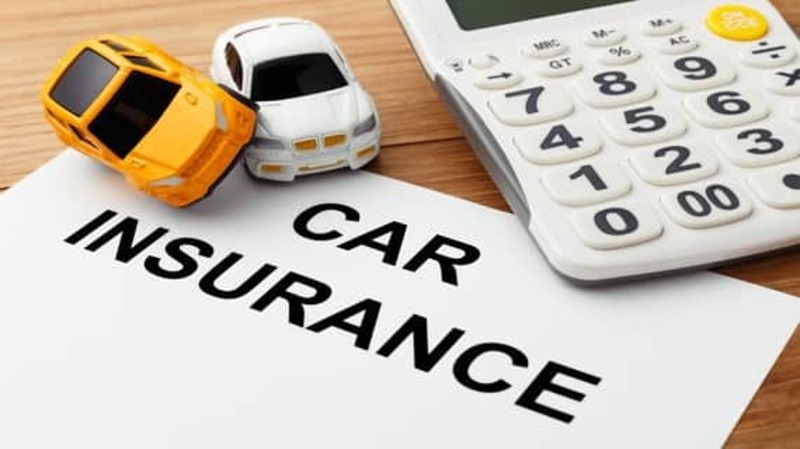This guide explains what you need to get a quote, the types of car insurance available, and tips to save money while ensuring you have the right coverage.
What Do You Need to Get a Car Insurance Quote?

To get a car insurance quote, insurers require specific information about you, your vehicle, and your driving history. Here’s a breakdown of what you’ll need:
-
Details About Your Car: You’ll need to provide your car’s registration number or its make, model, and age. Insurers also ask how you use your car—whether for personal, business, or commuting purposes and the number of miles you drive annually.
-
Your Personal Information: Insurers will request details such as your name, age, address, and occupation. If you plan to add other drivers to your policy, you’ll need their information as well.
-
Driving History and Licence: Providing information about your no-claims discount (NCD), any past accidents, and penalties is crucial. Sharing your driving licence number with the insurer might also help lower your premium.
What Type of Car Insurance Do You Need?
Car insurance policies come in three main types, each offering a different level of coverage. The right choice depends on how much protection you need and your budget.

Comprehensive Car Insurance
This type provides the most extensive coverage, including protection against damage to your car, fire damage, theft, and injuries or damages to third parties. Comprehensive policies often cost less than you might expect, as drivers choosing this option tend to have a lower risk profile.
Price Example: £729/year.
Third-Party, Fire, and Theft Insurance
This policy covers damages or injuries to third parties, fire damage, and theft of your vehicle. However, it doesn’t cover any damage to your car caused by an accident.
Price Example: £1,312/year.
Third-Party Only Insurance
This is the minimum legal requirement for driving in the UK. It covers injuries and damages caused to others but does not protect your vehicle under any circumstances.
Price Example: £1,789/year.
Why Is Comprehensive Car Insurance Often Cheaper?
It may seem surprising, but comprehensive car insurance is sometimes cheaper than third-party policies. This is because drivers who opt for third-party insurance are often seen as higher risk by insurers. Younger or less experienced drivers, for example, may choose third-party policies to save money, but they tend to file more claims.
Because comprehensive policies are often chosen by lower-risk drivers, they can come with lower premiums despite offering broader coverage. Comparing all policy types is crucial to ensure you’re not overpaying for less protection.
How to Save Money on Car Insurance Quotes
Finding affordable car insurance doesn’t have to be difficult. Here are some practical tips to help you reduce your premium:

-
Compare Multiple Quotes: Use online comparison tools to check prices from various insurers. This allows you to find the best deal for your specific needs.
-
Increase Your Voluntary Excess: Raising your excess—the amount you pay towards a claim—can lower your premium. Just ensure you can afford the excess if you need to make a claim.
-
Take Advantage of Discounts: Look for discounts based on your no-claims history, use of telematics (black box) devices, or bundling with other policies like home insurance.
-
Choose a Low-Cost Vehicle: Cars in lower insurance groups are generally cheaper to insure. Small, economical cars like the Ford Fiesta or Volkswagen Polo often have lower premiums.
-
Pay Annually: Paying for your policy upfront instead of in monthly installments can save you money by avoiding interest charges.
-
Maintain a Clean Driving Record: Avoid speeding tickets or at-fault accidents, as these can increase your premium.
-
Add Named Drivers Carefully: Adding an experienced driver to your policy can lower your costs, but only include people who genuinely drive your car.
FAQs about Car Insurance Quotes
What Are the Cheapest Cars to Insure?
Cars in lower insurance groups—typically smaller, less powerful models—are often the cheapest to insure. Examples include the Toyota Aygo, Hyundai i10, and Skoda Citigo.
How Can I Check If My Car Is Insured?
If you’ve misplaced your policy details, you can use the Motor Insurance Database (MID) to check whether your vehicle is insured.
What’s the Difference Between Comprehensive and Third-Party Insurance?
Comprehensive insurance provides the most protection, including coverage for your car. Third-party policies only cover damages or injuries caused to others.
Conclusion
Finding the right car insurance quotes doesn’t have to be complicated. By understanding what you need to get a quote, comparing different types of coverage, and using money-saving strategies, you can secure a policy that fits both your needs and your budget.
Remember to review your policy details carefully and don’t hesitate to shop around for better deals each year.
